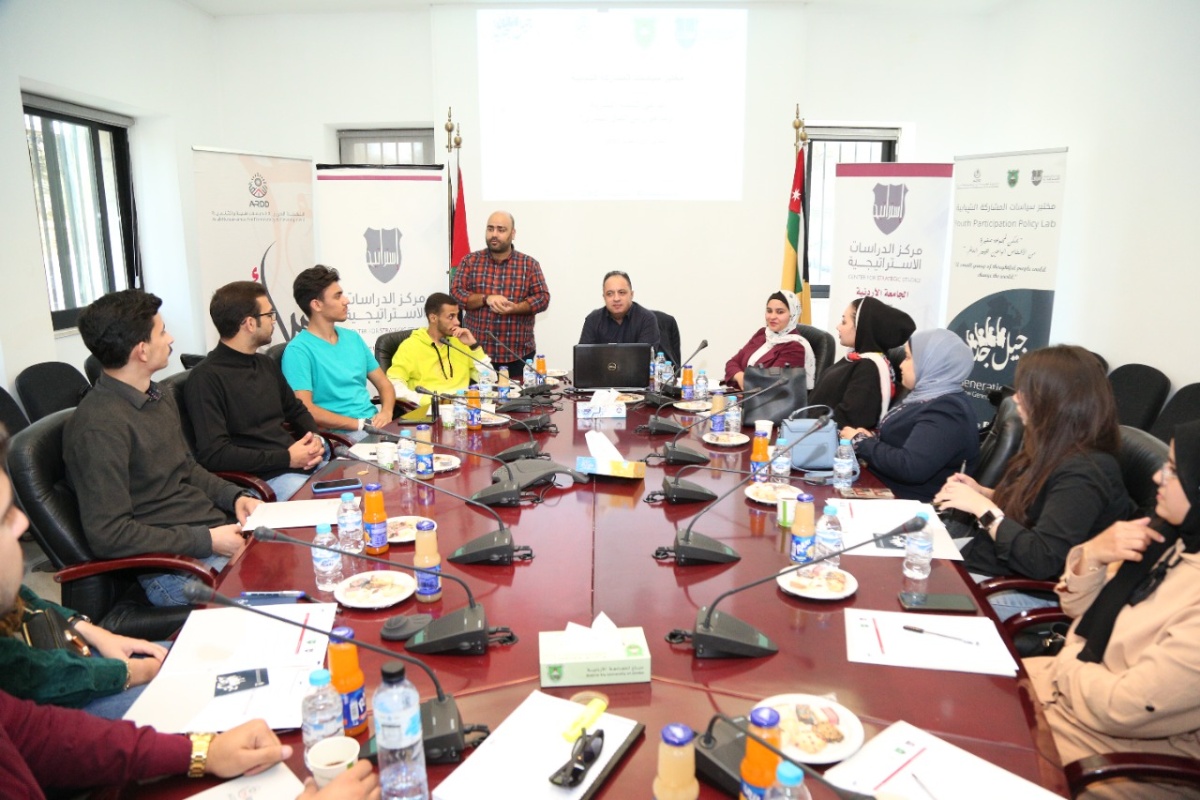AMMAN – If human capital were not the “cornerstone” for the progress of any society, we would not have seen many experiences of countries that have advanced scientifically, productively and creatively, after relying mainly on human development and developing the educational, health and social environment for their people. Arabic; Countries, including Jordan, are facing increasing pressures regarding youth unemployment and the lack of opportunities for them to develop their skills and tools in line with market requirements, which today requires an effective political will that focuses on developing human capital.
Within that framework, and to understand the challenges that prevent investment in human development, especially among the youth, the second session of the Youth Participation Policies Lab, implemented by the Arab Renaissance for Democracy and Development (ARD) in cooperation with the Center for Strategic Studies at the University of Jordan, came as part of the “New Generation” project. To enhance their concepts of civil and political participation, and to provide students of the faculties of political science and law with practical experience that will help expand the horizons of their work in the future. the session expanded; Which brought together students of the Faculty of Law and Political Science at the University of Jordan, on Tuesday, October 24, 2022, to open a dialogue with young people interested in working on public policies related to political and civil participation, and to increase their awareness of the issues facing them and communicate their perceptions and proposed solutions around them. These inclusive sessions for those entering political action are an “important gateway” to introduce them to experts and specialized institutions in this field, and also to help them make their voices heard in order to draw up policies and communicate positively and effectively with decision-makers.
For his part, the human rights expert, Dr. Riyad Al-Sobh stressed the importance of investing in people and upgrading human capabilities, which is a national responsibility for governments, societies and civil society, pointing out that human development is the basis for achieving economic development. Where the concept of human development was clarified in the context of developing capabilities, focusing on education, improving livelihoods, and integrating with political development, that is, what can be emphasized is that the achievement of actual development is through an approach based on human rights.
“The Arab world as a whole possesses large resources that are not being properly exploited, as we still depend on the pastoral system and do not improve production, innovation and investment in resources and human capital, which is clearly reflected in economic development,” he said. Accordingly, improving the human capital index in the countries of the Middle East and North Africa requires sufficient and effective investments to improve health and education outcomes, increase the employment of women and youth to make better use of existing human capital, and strengthen social protection systems to help all people achieve their potential.
On the relationship between human development and economic growth, the economist, Dr. Raad Al-Tal, that “the greater and expanded productivity, the greater the human welfare and progress in various fields.” He called for the necessity of qualifying human cadres to increase productivity, introducing a compulsory course for law and political science students on economic concepts, and employing technology in business.
The students discussed how to present practical recommendations in order to achieve development in Jordan through the development of education, and about strengthening the role of Parliament and local councils in improving job opportunities. Where the participants focused on the importance of education and its ability to enhance economic and human development, they stressed the need to get rid of rote learning, develop curricula and make education free, and the need to include new specializations required by the labor market. With regard to work, the participants recommended getting rid of administrative slackness, as well as employing expertise in the appropriate place, with the importance of having emergency policies to solve the problem of unemployment, and empowering women and youth to create an attractive environment for investments and bring about the desired change. With regard to the role of councils, pushing towards legislation that guarantees the development of education and the strengthening of the work environment to ensure the involvement of youth and women.


